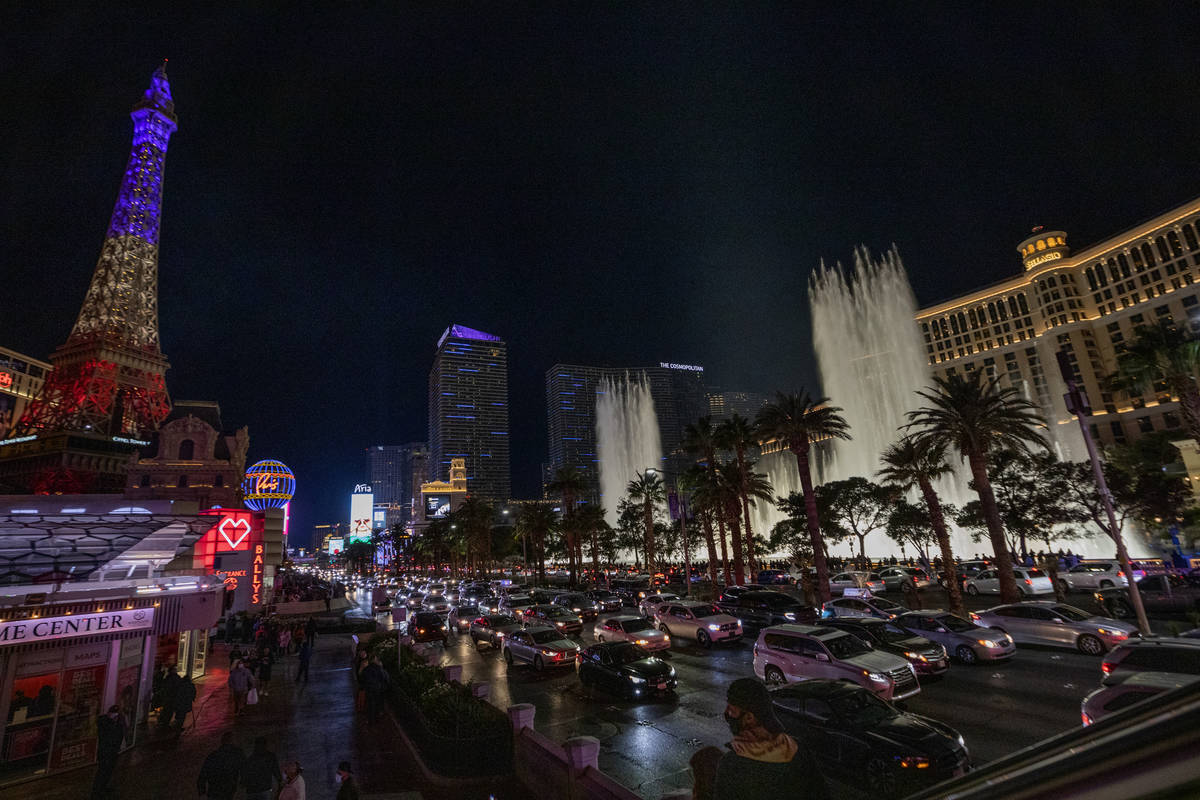Gaming Abstract shows just how big the industry’s economic hole is
To say Nevada’s largest casinos had a rough 2020 fiscal year would be a huge understatement.
The Nevada Gaming Control Board on Friday, Jan. 22 released the Nevada Gaming Abstract 2020, a 179-page statistical report calculating revenue from gaming, food and beverage, rooms and other sources for 267 casinos across the state that grossed $1 million or more in gaming revenue during the fiscal year that ended June 30.
The difficult year was no surprise because it included the 78-day time frame between March 17 and June 4, during which the state’s resort community was closed as a way to slow the spread of the COVID-19 pandemic.
“Today’s release of the abstract shows how big of a hole the Great Shutdown impacted the industry,” said Brendan Bussmann, director of government affairs for Las Vegas-based Global Market Advisors. “While no one has ever planned for zero, we basically hit rock-bottom last spring, showing an impact larger than the Great Recession, 9/11, or any other major event. The industry will be stronger once we come out of this but it will take years to recoup the losses and reach the levels from a year ago.”
The annual Gaming Abstract is different from many of the monthly reports the Control Board issues because it includes data from the food, beverage and lodging sectors in addition to casino figures.
Because the unprecedented shutdown of the resorts affected all revenue sectors and geographic markets, several historic streaks came to an end.
The Control Board reported:
■ Room revenue of $4.7 billion decreased 26.8 percent or $1.728 billion. That ended a streak of nine consecutive increases and all-time records set in six consecutive years.
■ Food revenue of $3.127 billion decreased 25.9 percent or $1.091 billion. That ended a streak of six consecutive increases and an all-time record set in six consecutive years.
■ Beverage revenue of $1.486 billion decreased 28.7 percent or $597.3 million. That ended a streak of 10 consecutive increases and the ninth-straight record amount recorded by the abstract.
For the year, “total revenue” — the amount spent by patrons on gaming, rooms, food, beverage and other attractions — was $18.348 billion and “net income” — the amount retained by casinos after expenses have been paid but prior to deducting federal income taxes and prior to accounting for extraordinary expenses — was $2.893 billion.
“The significant drop in revenue produces other challenges beyond the operator side of the ledger,” Bussmann said. “Tax revenues across the board impact our local and state governments, affecting services across the state. While it appears these entities may get a bailout, one of the lessons that needs to be learned is the need for diversification not just within the industry but in other aspects of the economy, especially here in Southern Nevada.”
Compared with the 2019 fiscal year, total revenue was $24.546 billion and net revenue was $2.056 billion.
Gaming revenue accounted for $6.747 billion or 36.8 percent of total revenue. Those 267 casinos paid $694 million in gaming taxes and fees, equating to 10.3 percent of their gaming revenue.
On a county-by-county basis, Clark County had 157 casinos grossing $1 million or more in gaming revenue during the 2020 fiscal year, which generated combined net income of $2.912 billion from total revenue of $16.298 billion.
Washoe County had 33 casinos that reported combined net income of $21.291 million from total revenue of $1.166 million. Elko County had 17 casinos with $11.933 million in combined net income. South Lake Tahoe in Douglas County with six licensees reported a net loss of $65.862 million, the Carson Valley Area with 15 casinos generated net income of $3.759 million. The balance of the state had 39 casinos earning $9.479 million in combined net income.
The Las Vegas Strip recorded several large real estate sales in Fiscal Year 2020 in which several properties now lease the land and building from a new owner. Those sales resulted in large gains being recognized by those licensees due to the disposal of those assets.
“Today numbers show major gaming centers like Las Vegas and Macao will have a longer recovery than more regional markets, especially those in the United States,” Bussmann said. “While the models for Las Vegas and Macao differ on their path for recovery, Las Vegas will be best able to jump-start that effort once lift and the business customer returns to the destination.”

















